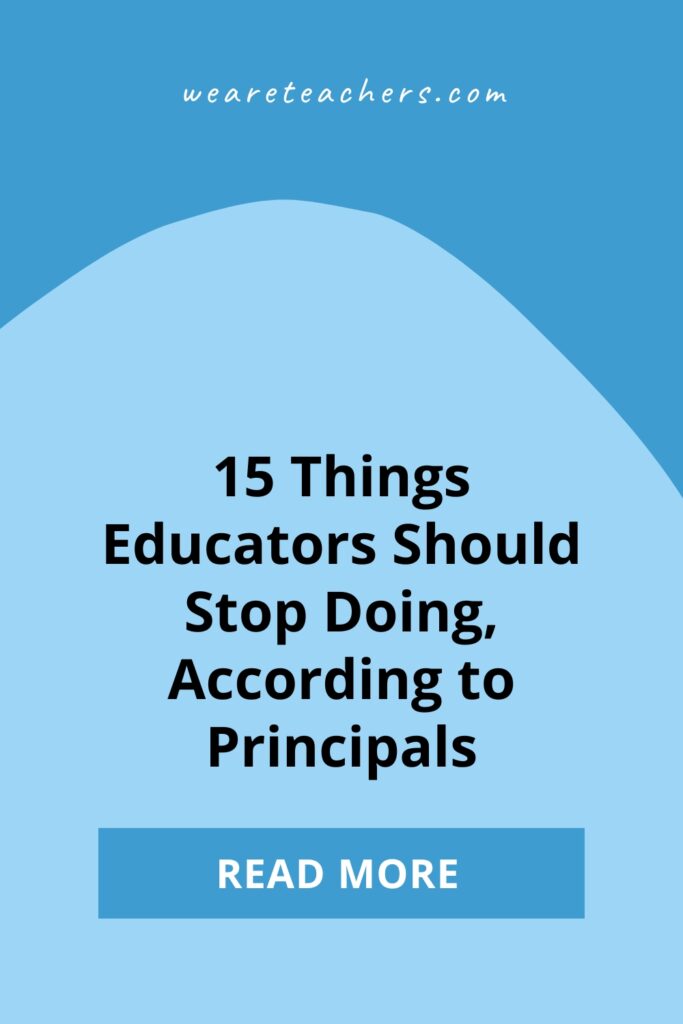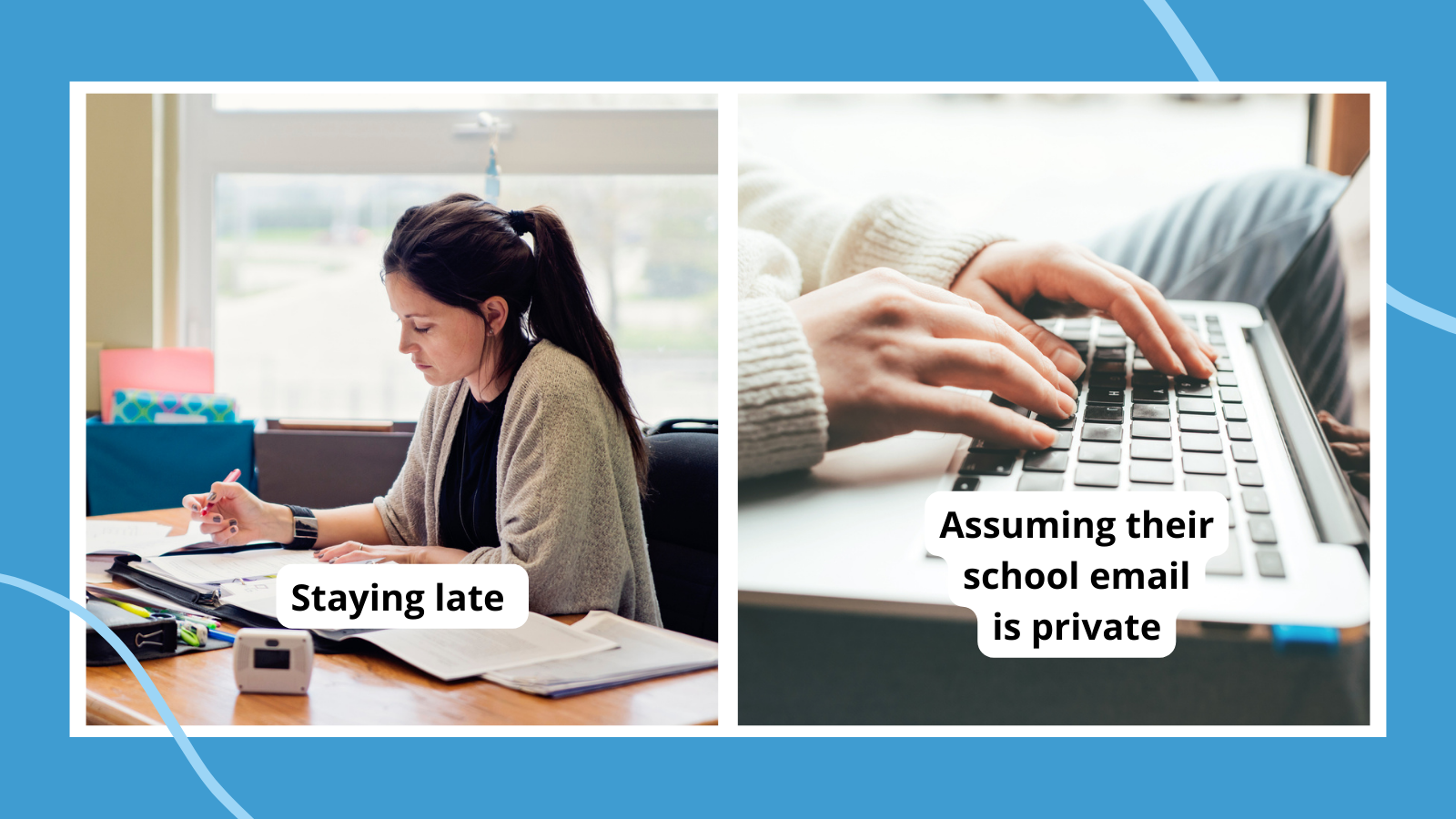Recently, conversation in our Principal Life group on Facebook turned to the things educators should stop doing according to principals. You may think the comment section was a complaint-fest, but many principals brought up ways they wish their teachers would take care of themselves, set boundaries, or protect themselves.
Curious to learn what principals wish teachers would stop doing? Read on!
1. Holding their pee
“It’s bad for bladders and the kidney. Studies have proven this,” said one of our group members. We couldn’t agree more—so let’s make it easier for teachers to take bathroom breaks by providing coverage and/or entrusting students to be left alone for short periods of time.
2. Assigning daily homework
Multiple principals brought up the practice of assigning homework. And they’re right to call it into question. The benefits of homework are decidedly fuzzy, especially at the elementary level.
3. Stopping us every time they see us
“You don’t have to stop us every time you pass us,” one principal in our group noted. “We probably just came out of a tough meeting, may be processing a phone call we just hung up with, or are on our way to another meeting, preparing notes in our mind, etc. We may not feel like listening or trying to solve your issue right now!”
4. Positioning us as the enemy with students
One principal issued an important reminder: “Yes, discipline will always be part of an administrator’s work, but it’s a small fraction of what we do. We are there to support all students, not just those who get in trouble.”
5. Telling us too much about why you were out
“Please don’t show me your crown that fell out or give me all the details on your colonoscopy. Sometimes less is more!”
6. Venting about school on social media
“Not everyone giving advice is an expert!” one principal warns.
7. Assuming school email is private
“It doesn’t take a whole lot for emails to be subpoenaed.” (We can’t help but wonder how the principal learned this!)
8. Punishing elementary students for being late to school
Yes! This is another punitive policy that doesn’t make sense. Most elementary students rely on adults to get them to school, and we shouldn’t punish kids for adult failures.
9. Asking kids what they did over break
Oftentimes this is a default conversation topic after winter or spring break, but it can be hurtful for many kids. We talk about that issue more here.
10. Doing work after hours
Many administrators said they wished educators would stop taking work home. “There will always be something to do,” wrote one principal. “Leave work at work and enjoy your time with your family.” We couldn’t agree more—but we need principals willing to set boundaries by avoiding giving extra duties, reinforcing contract hours with families, and creating schedules that allow teachers to get more work done during the school day.
11. Giving weekly spelling tests
This is another one that, like homework, isn’t really supported by current research.
12. Using classroom reward systems and treasure chests
“Rewarding students who are compliant out of fear of punishment or punishing students who don’t have the skills to meet behavior expectations is something we should all drop,” wrote one principal. Here’s more info on why extrinsic rewards don’t typically work long-term.
13. Diagnosing students without having the appropriate degrees
Let the experts do the diagnosing, and we’ll meet kids where they are.
14. Using deficit-based language to describe students
When we start with what kids can do, we’re looking for opportunity. When we start with what they can’t, we’re looking for problems. Here’s a more detailed look at deficit-based language in education.
15. Having an “us” versus “them” mentality
“I continue to hate the division of teachers and administrators at times. We better find ways to come together and work together for our students,” wrote one principal. Another chimed in, “We’re all educators and should seek to understand and help one another move forward.” We agree this division isn’t always helpful—but in order to make it stop, teachers need to have a seat at the table and be empowered as decision-makers within their own school communities.
For more articles like this, be sure to subscribe to our newsletters.


